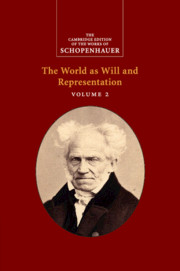Chapter 37 - On the Aesthetics of Literature
Published online by Cambridge University Press: 30 June 2022
Summary
I would like to propose as the simplest and most accurate definition of poetry that it is the art of putting the imagination into play through words. I have discussed how it does this in the First Volume, § 51. A particular confirmation of what I said there is to be found in a letter published since then by Wieland to Merck: ‘I have spent two and a half days on a single stanza, where it is essentially just a matter of a single word that I needed and could not find. I have twisted and turned the thing and my brain in every direction; because where it is a matter of a likeness, I naturally want my reader to see the same particular vision that hovers before my own eyes, and for that, as you know, everything so frequently depends on a single stroke or stress or reflex.’ (Letters to Merck, edited by Wagner, 1835, p. 193.) – Because literature presents its images in the reader's imagination, it has the advantage that the more detailed execution and subtler features play out in each person's imagination in the manner best suited to his individuality, the reach of his knowledge, and mood, and therefore stir him most vividly. By contrast, the visual arts are not so accommodating; in their case, a single image, a single form must be enough for all: but this image will always bear, in something, the mark of the individuality of the artist or his model, as a subjective or accidental supplement, not as an effective one; although this becomes less true the more objective the artist is, i.e. the more of a genius he is. From this alone we can partially explain why works of literature have a much stronger, deeper, and more universal effect than pictures and statues do: for the most part, pictures and statues leave the ordinary people cold, and in general the visual arts have the weakest effects. An odd illustration of this is the frequent discovery of pictures by great masters in private houses and all manner of locations where, over the course of so many years, they have not been hidden or concealed but have simply hung there unnoticed and thus without effect.
- Type
- Chapter
- Information
- Schopenhauer: The World as Will and Representation , pp. 441 - 455Publisher: Cambridge University PressPrint publication year: 2018

